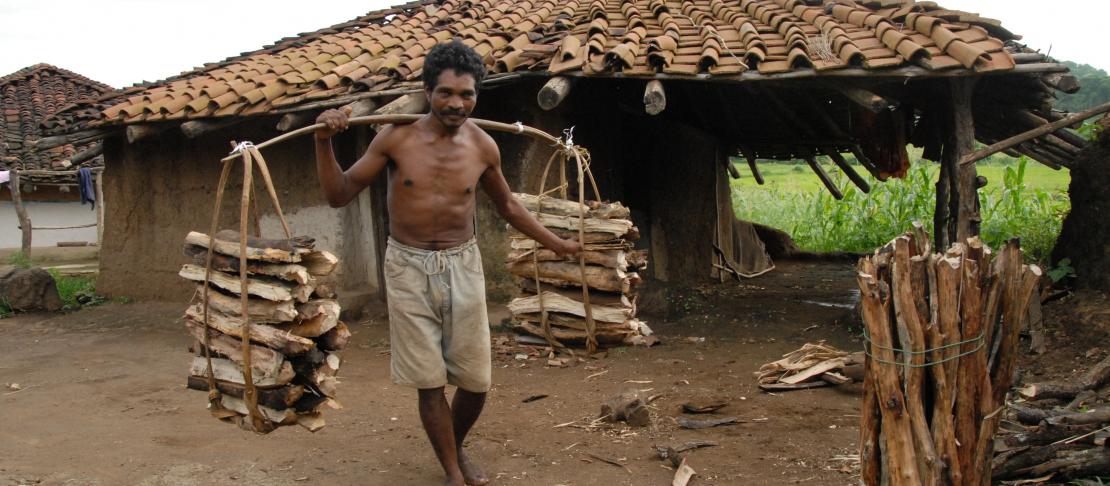Investments in rural livelihoods help 13 million Indians build climate resilience

by Liz Drake, Department for International Development (DFID)
Over the last 20 years, DFID has invested £250m in 10 rural livelihoods projects in India, working with the governments of four states: Andhra Pradesh, Orissa, Madhya Pradesh and West Bengal. The aim of the portfolio has been poverty reduction through various entry points (e.g. forestry, watershed development, rain-fed farming and rural decentralisation). The programmes focus on chronic poverty, seasonal and persistent hunger, and on people excluded from services because of caste/tribal identity or low economic status.
State-based programmes have worked with poor rural communities to strengthen local governance (PRIs) and to help poor people manage resources, and access assets, services and opportunities to generate income and reduce vulnerability and risk. Women and socially excluded tribal and caste groups living in remote areas are particularly targeted. The programmes also help people access other rural development initiatives of the central and state governments such as the National Rural Employment Guarantee Scheme (NREGS), and contribute to the effectiveness of such schemes. There have also been additional benefits not originally envisaged as the rural livelihoods programmes have contributed to building resilience to climate change.
As our programme draws to a close in June this year, we are launching a 20 year retrospective evaluation of our work and look forward to sharing the lessons with MoRD at state and national levels. The remaining RL Project (MPRLP) support is due to complete in June 2012, we estimate that DFID India has helped over 13 million of the poorest and most excluded people to increase their income, build productive assets, improve their food security and develop resilience to climate variability. It estimated that at least 1.5 million poor people (300,000 households) have been brought out of poverty over the decade 2000 to 2010 as a direct result of DFID’s rural livelihoods projects in India. The retrospective evaluation will help us to quantify our impacts.
Madhya Pradesh Rural Livelihoods Project
The Madhya Pradesh Rural Livelihoods Project (MPRLP) has operated in two phases from 2004-2012. Phase 2 (July 2007-June 2012) has reached 2.3m people in 2,091 villages in 9 districts in MP with a UK contribution of £45m. The project goal is: Livelihoods of poor rural people in Madhya Pradesh sustainably enhanced.
Impact on climate resilience of communities
MPRLP adopted a sustainable livelihoods approach which has significantly contributed to improved climate resilience of the 2.3 million people it was working with, in particular the poorest and most vulnerable. The project has helped with: targeting and including the poor; reducing distress migration; improving disaster coping capacity; increasing incomes and food security; Building the institutions of the poor (e.g. SHGs); Improving access to assets and credit; and enhancing agricultural productivity.
More information
Read more about Climate Change, Agriculture and Food Security work in South Asia.
This blog post was written by Liz Drake, Department for International Development (DFID). To get more updates on our research in South Asia, follow us on Facebook and Twitter @Cgiarclimate.